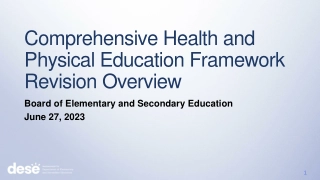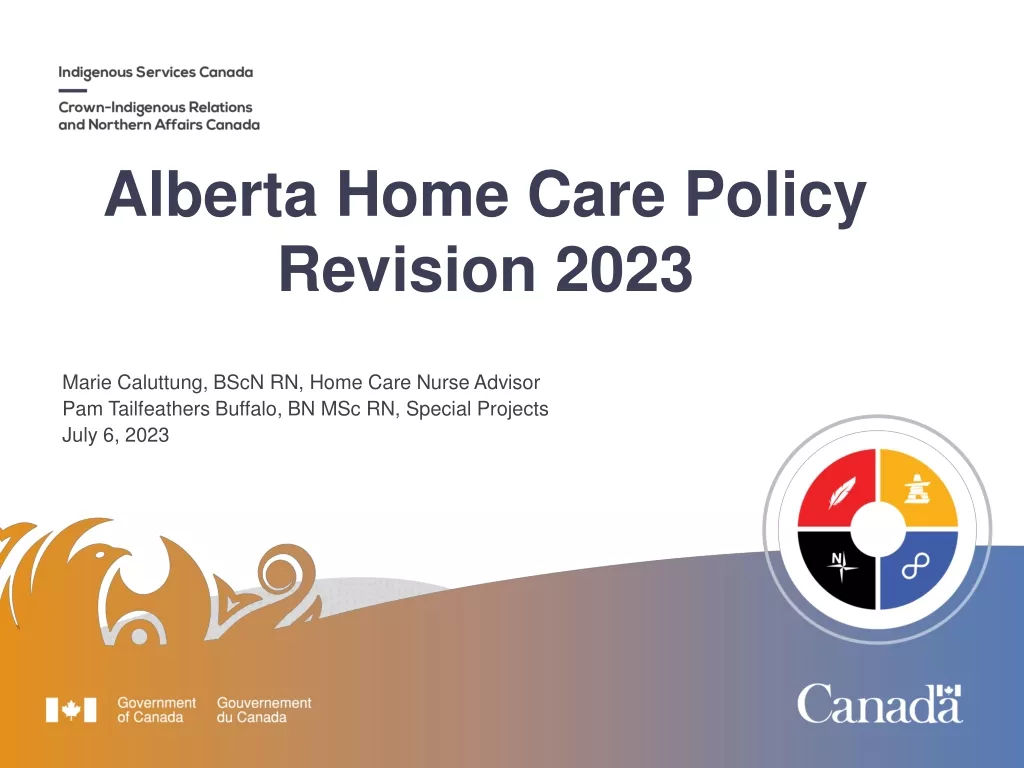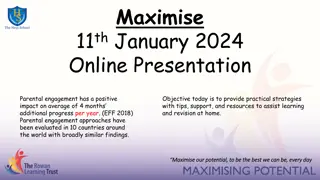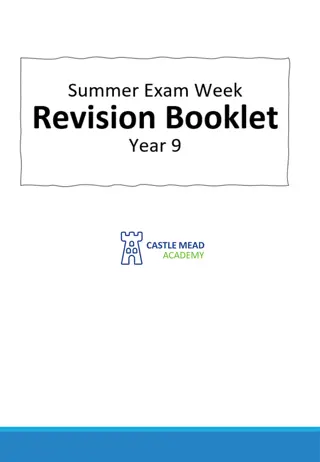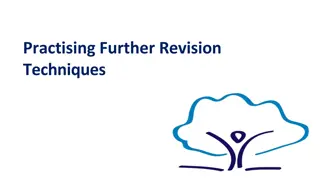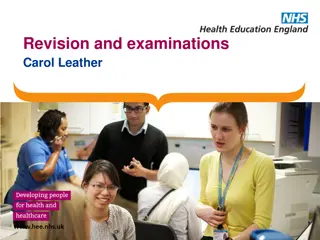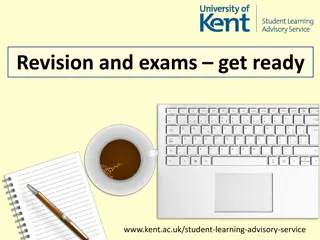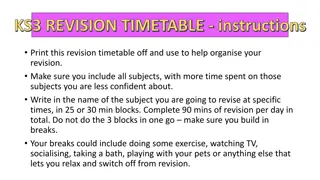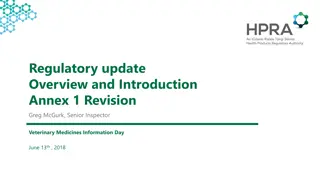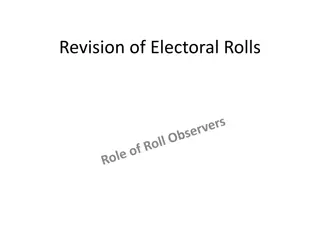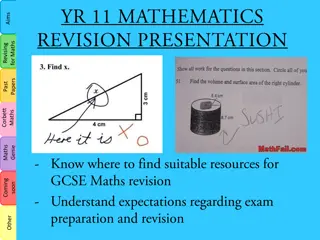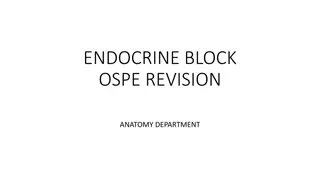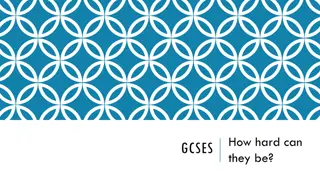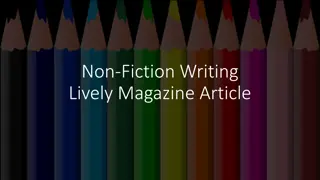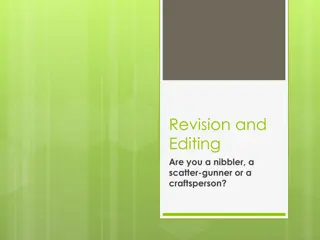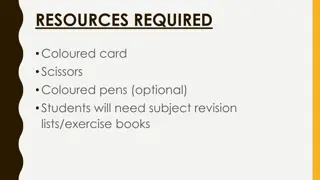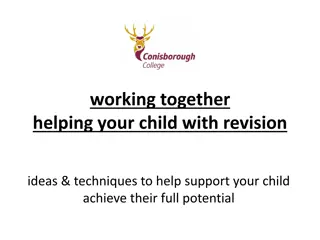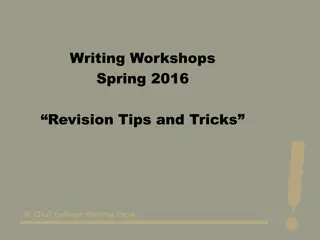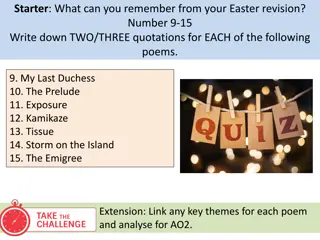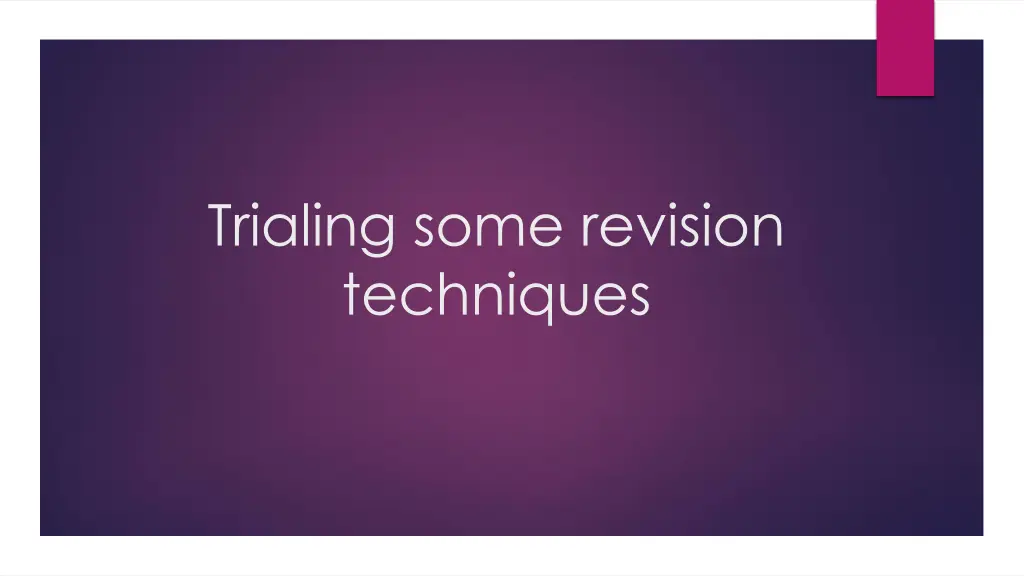
Effective Revision Techniques for Better Learning
Explore effective revision techniques such as creating flashcards and mind maps to enhance memory retention and improve study habits. Avoid common mistakes students make and discover what techniques work best for successful revision. Put your knowledge to the test by applying these principles to create your own study aids.
Download Presentation

Please find below an Image/Link to download the presentation.
The content on the website is provided AS IS for your information and personal use only. It may not be sold, licensed, or shared on other websites without obtaining consent from the author. If you encounter any issues during the download, it is possible that the publisher has removed the file from their server.
You are allowed to download the files provided on this website for personal or commercial use, subject to the condition that they are used lawfully. All files are the property of their respective owners.
The content on the website is provided AS IS for your information and personal use only. It may not be sold, licensed, or shared on other websites without obtaining consent from the author.
E N D
Presentation Transcript
Trialing some revision techniques
Mistakes students often make: Spend ages re-reading notes. Highlighting notes. Keep making notes. Spending time on making beautiful revision materials. Spending hours revising but actually checking phones or being distracted. Spending hours revising in one go.
What revision techniques work? Anything that tests your memory: Online quizzes. Your own set of questions and answers. Flash cards. Mind maps. Brain dumps. Visual prompts e.g. dual coding or timelines
Flash cards You do not need to buy special cards! You can cut regular paper or card into rectangles. Once you have your flashcards made, you should revisit them regularly. One side of the flashcard contains the information you need to recall. The other side has the prompt. This could be text in a form of a question, an image or both! They can be used in a range of subjects from key vocabulary for Languages to memorising mathematical equations. Remember to keep them brief. The prompt should be brief and the information should also be brief. Yet, it should be able to help you use the information more effectively. There is also a website called Quizlet where you can create your own flashcards and other resources online! https://quizlet.com/gb/552406158/collapse-of-soviet-union-1985-1991-flash-cards/?i=34scxl&x=1jqY
Your turn YOUR TASK:- Now have a go at applying these principles to create a set of flashcards on how our memory works. Read through the information. On one side, write down key questions e.g. what is the sensory store? What is the duration and capacity of our short term memory? On the other side, write down the answers for each. Make a note of how you could use flashcards in your revision!
Mind maps Take a sheet of white unlined paper and turn it landscape . Choose some bright felt tip pens. Draw a picture/ large heading in the centre of the page which connects with what you want to learn. Choose a colour and draw a main branch off the central picture/heading. Write the first idea/key concept about the subject in CAPITAL letters. Draw separate branches for each idea in different colours. Develop each main branch into separate smaller branches as you add more ideas with a minimal number of words. Finally add pictures to each branch to aid your memory.
Your turn YOUR TASK:- Now have a go at applying these principles to create a mind map for Inspector Calls. Read through the information. Divide up the information into different categories. You decide on the categories. Each category will be a main branch and evidence for it smaller branches. Create a slimmed down version of the most important elements for your mind map. Make a note of how you could use mind maps in your revision!
Key Points Use exam board specifications to create your revision notes Add key details using your exercise books and revision books Create your flash cards, quizzes, mind maps Test yourself regularly For work that you are unsure of go back to exercise books, revision books, GCSEPod, Seneca, BBC Bitesize re-learn Regular testing of all topics and all subjects
Once youre secure in your knowledge Practice answering exam questions! Start by completing the question using your own knowledge. If you are struggling use your revision notes but add this to your answer in green pen. Once you are writing most of your answer without using revision notes, start timing yourself (give yourself the same amount of time you would have in the exam).

